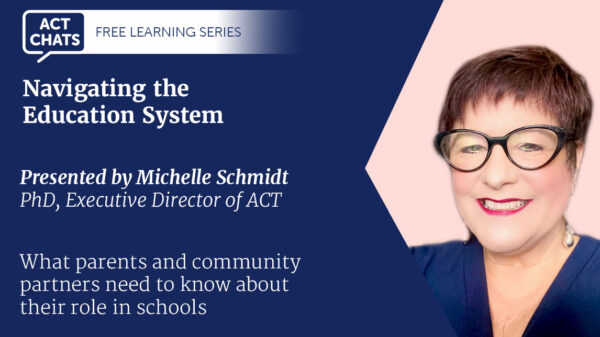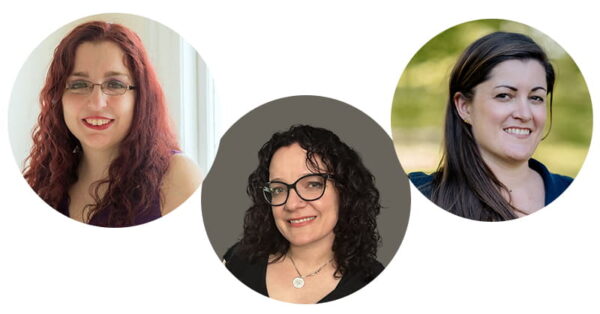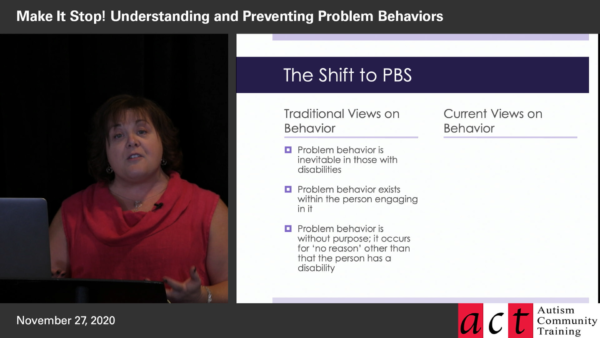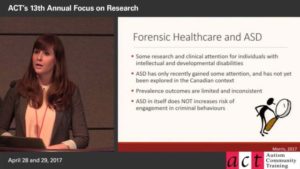Filmed April 2017 – edited into 3 parts; total 18 minutes
Forensic healthcare is a sub-specialty of mental health care that supports individuals who have come into contact with the legal system, typically the criminal justice system. Some attention has been directed to forensic service provision for individuals with intellectual and developmental disabilities. However, research specific to ASD has only recently gained attention and has not yet been explored in Canada.
This presentation shares information on research to date, highlights potential practice and research gaps, and shares risk and protective factors and preliminary recommendations for improving forensic service provision for adults with ASD who may encounter this system. Risk and protective factors of interest to forensic service providers, mental health professionals, community professionals, and family members are shared supporting strengths-based preemptive practices that reduce risk of involvement in the criminal justice system.
While this presentation highlights a specific sub-speciality within mental health care, the implications can be beneficial in informing the broader context of Canadian mental health care, and the efficacy of mental health interventions and treatment programming for individuals with ASD.
Learning Objectives
- Review international research relating to forensic healthcare and ASD.
- Identify practice complexities, challenges, and gaps in forensic healthcare service delivery for individuals with ASD.
- Reflect onsome risk and protective factors for individuals with ASD before, during, and after coming into contact with the forensic healthcare system.
Rae Morris, MSW, RCSW







